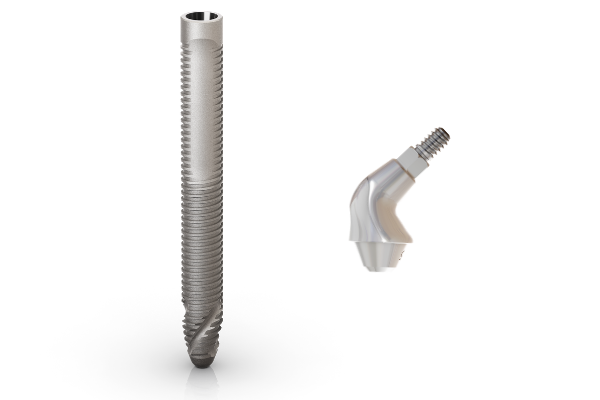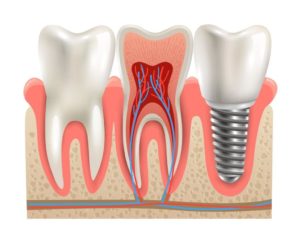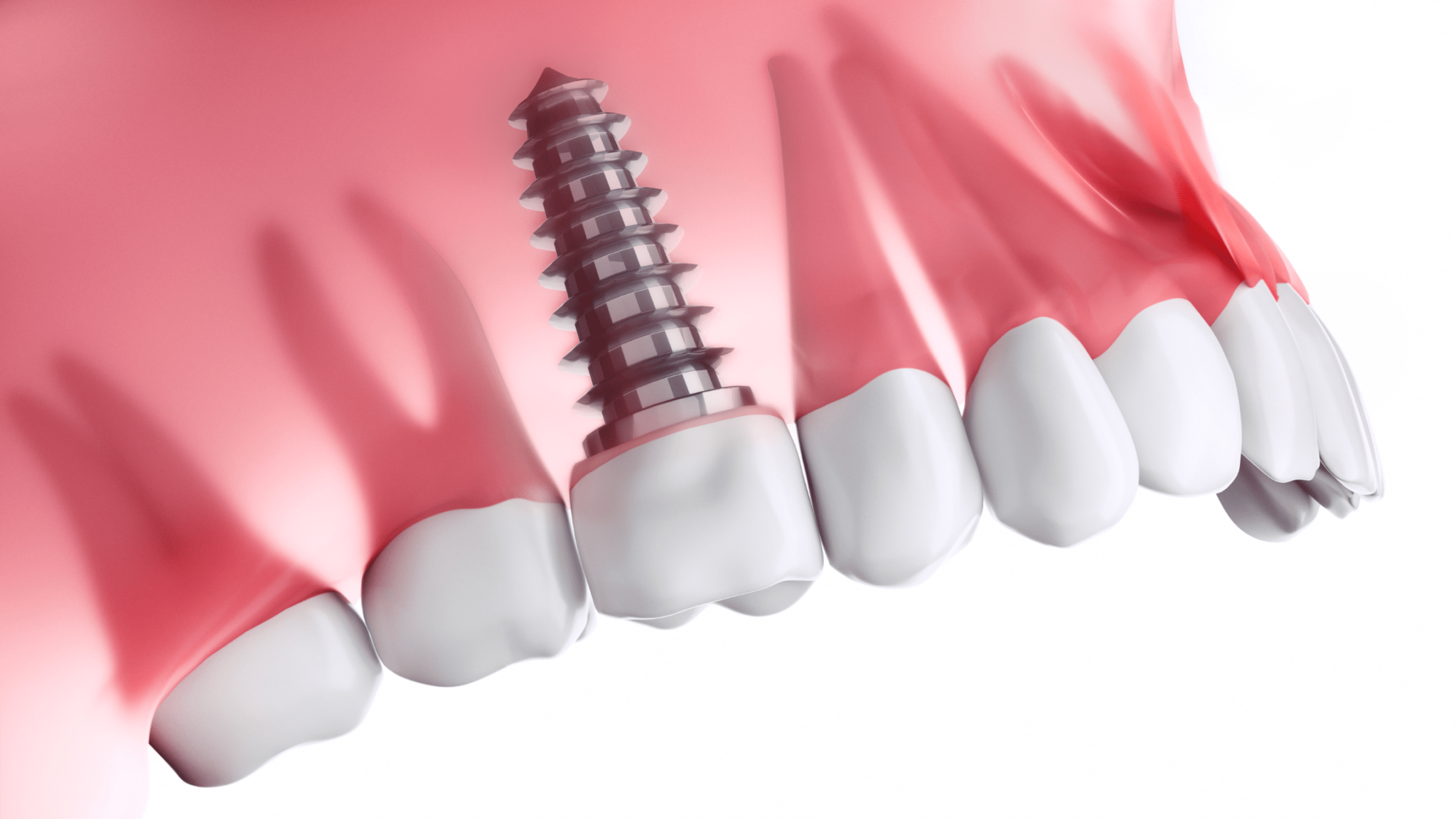Zygomatic implants are dental implants that are anchored in the zygoma, or cheekbone. They are used for patients who have moderate, advanced and even extreme resorption in the maxilla, or the upper jaw. Normally, when needed, zygomatic implants will be used to replace a full set of teeth in the upper jaw for patients who have severe bone loss in the maxilla.
Are Zygomatic Implants Safe?
Yes, when placed by a qualified oral and maxillofacial surgeon, zygomatic implants are safe, effective and painless. As these implants come near sensitive parts of the face, including the eyes and sinuses, it is important that they be placed by a qualified and experienced surgeon to avoid serious complications.
The most effective way to understand zygomatic implants is to see them. The animation below illustrates placement of two zygomatic implants and four traditional implants, an all-on-six implant procedure. The full upper bridge is anchored by the implants.
Zygomatic implants make it possible to sidestep bone loss issues. The extended length of the implant allows it to anchor into a patient’s cheekbone, or the zygoma. No bone grafting or sinus lifts are needed. The zygoma is a very dense bone and provides excellent implant support for the lifetime of the patient.

Why Does Losing Teeth Cause Bone Loss?
Like muscle, bone is a tissue that requires exercise in order to maintain strength and mass.
A natural tooth is nested within the jawbone. Regular pressure from chewing and biting down exercises the bone and signals the body to fortify a healthy jawbone. When the teeth are lost or removed, the surrounding jawbone is no longer stimulated by chewing activity, and this disuse quickly leads to bone loss.
When teeth must be removed, a dental implant is a last resort option to replace the missing or unsalvageable teeth. Quality dental implants, including zygomatic implants, offer a lifetime solution that is comfortable and strong, matching the look and feel of natural teeth.
How Do Implants Work?
The roots of a natural tooth are secured within the root canal of a person’s jawbone. In a similar way, conventional dental implants are anchored in place by the jawbone.

For someone with significant bone loss in the upper jaw, a traditional implant can’t be adequately anchored, leading to additional complications and ongoing pain or discomfort.
How Do Dental Implants Help Prevent Bone Loss?
Dental implants that imitate the natural stimulation of teeth are the most effective method for preventing further bone loss. The titanium root of a New Teeth Now implant duplicates the pressure and stimulation of chewing, matching the natural stimulation of teeth. This gentle action signals the body to continue fortifying the jawbone, significantly reducing the risk of bone loss, and quite often leading to stronger and healthier bone.

Titanium implants imitate the role of a natural tooth root, providing stimulation to your jawbone and allowing osseointegration, fusion with the bone.
To prevent additional bone loss, implants should be placed immediately following tooth extractions. The sooner the better.
Can You Have Dental Implants If You Suffer from Severe Bone Loss?
Since zygomatic implants can be placed in one day and have a higher success rate than bone grafting, they are the ideal solution for bone loss when receiving a full arch prosthesis in the upper jaw.
While traditional implants are placed in the jawbone, surgeons utilize the zygomatic implant’s length to securely place them in the patient’s cheekbone, or zygoma. The zygoma is a very dense bone and provides excellent support for the lifetime of the patient.
Where Can You Get Zygomatic Implants?
Although the placement of zygomatic implants is a very safe and effective procedure, it requires the specialization and experience of a qualified oral surgeon. Not many oral surgeons have routine-experience placing zygomatic implants. Depending on your location, you may need to travel to have your zygomatic implants placed.








